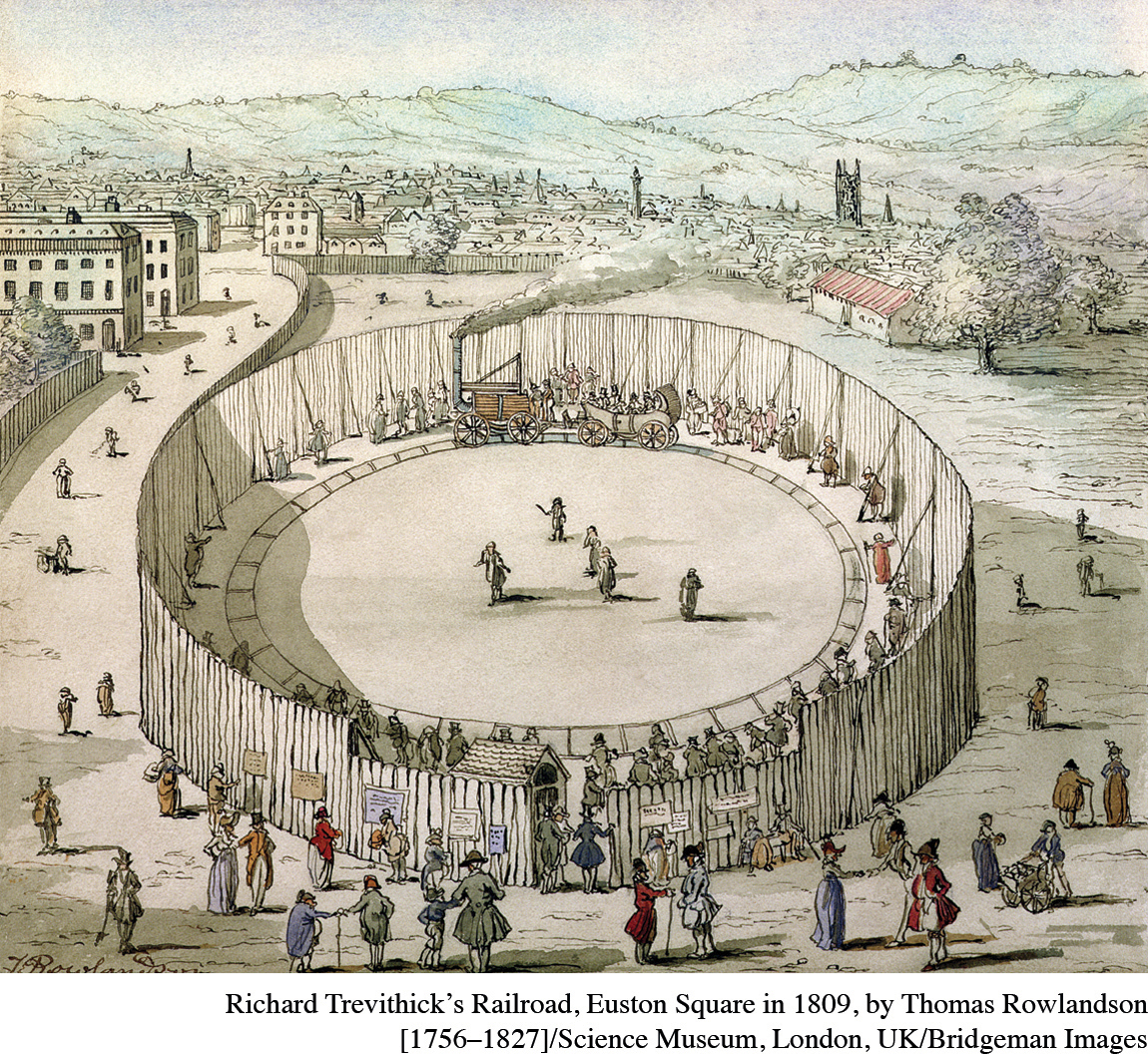The First Industrial Society

Wherever it took hold, the Industrial Revolution generated, within a century or less, an economic miracle, at least in comparison with earlier technologies. The British textile industry, which used 52 million pounds of cotton in 1800, consumed 588 million pounds in 1850. Britain’s output of coal soared from 5.23 million tons in 1750 to 68.4 million tons a century later.16 Railroads crisscrossed Britain and much of Europe like a giant spider web (see Map 17.1). Most of this dramatic increase in production occurred in mining, manufacturing, and services. Thus agriculture, for millennia the overwhelmingly dominant economic sector in every civilization, shrank in relative importance. In Britain, for example, agriculture generated only 8 percent of national income in 1891 and employed fewer than 8 percent of working Britons in 1914. Accompanying this vast economic change was an epic transformation of social life. “In two centuries,” wrote one prominent historian, “daily life changed more than it had in the 7,000 years before.”17 Nowhere were the revolutionary dimensions of industrialization more apparent than in Great Britain, the world’s first industrial society.
The social transformation of the Industrial Revolution both destroyed and created. Referring to the impact of the Industrial Revolution on British society, historian Eric Hobsbawm wrote: “In its initial stages it destroyed their old ways of living and left them free to discover or make for themselves new ones, if they could and knew how. But it rarely told them how to set about it.”18 For many people, it was an enormously painful, even traumatic process, full of social conflict, insecurity, and false starts as well as new opportunities, an eventually higher standard of living, and greater participation in public life. Scholars, politicians, journalists, and ordinary people have endlessly debated the gains and losses associated with the Industrial Revolution. Amid the controversy, however, one thing is clear: not everyone was affected in the same way.